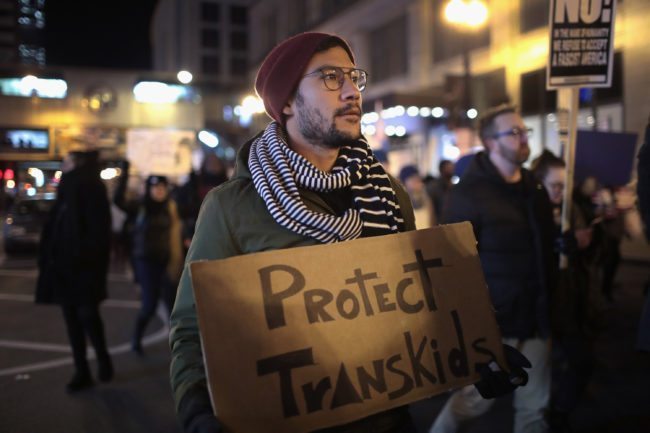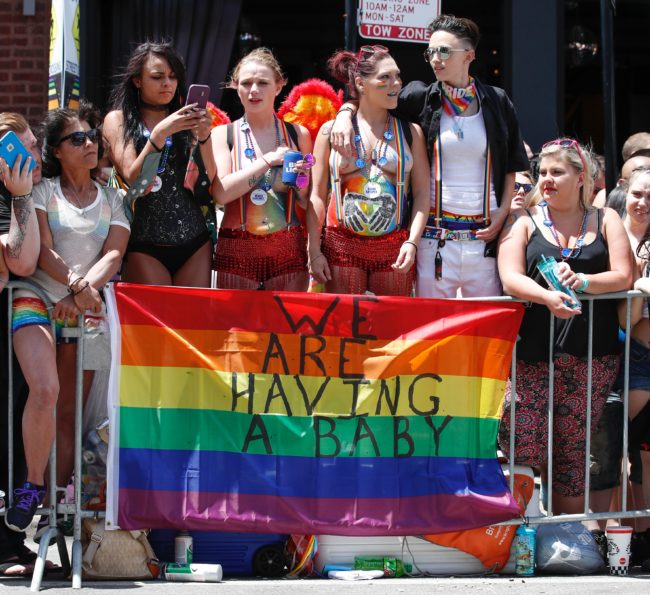Illinois is about to ban the ‘gay panic’ defence – with more states expected to follow in 2018

(Getty)
Illinois is set to no longer consider the ‘gay panic’ defence.
The defence means that assailants who attack gay men after seeing homosexual behaviour can argue in court that they could not reasonably control their actions.
It relies on a largely discredited idea that many men have a natural response of rage when witnessing gay behaviour, which makes their actions uncontrollable.

(Photo by Scott Olson/Getty Images)
Illinois’ law will also prohibit the ‘trans panic’ defence, which has been used by men who discover that their sexual partner is not a cisgender woman.
Only one other state – California – has banned either defence.
But LGBT rights advocates are aiming to repeat their triumph in Illinois in half a dozens states next year, according to The Associated Press.

(Getty)
After the bill sailed through the Illinois legislature earlier this year, Republican Governor Bruce Rauner signed the prohibition into law without comment.
It will come into effect in January.
Brian Johnson, the CEO of Equality Illinois, said: “For us, it was important to eradicate (the defence), regardless of use.
“It makes our identity sufficient reason for murder,” he added.

(Getty)
“We never wanted it to be used going forward.”
D’Arcy Kemnitz, the National LGBT Bar Association’s executive director, said: “The gay and trans ‘panic’ defences are outdated relics reminiscent of a time when widespread antipathy was commonplace for LGBT individuals.
It asks jurors to find that a victim’s sexual orientation or gender identity excuses the actions of a violent criminal,” Kemnitz said.

(Getty)
“Our nation’s courtrooms cannot truly be places where law rules supreme while these defences are still allowed to persist.”
Earlier this year, a study published in the Psychology and Sexuality journal concluded that there was “no empirical evidence” to support the gay panic defence.

(Getty)
One famous attempt to use the gay panic defence in court involved 15-year-old California schoolboy Larry King, who was murdered by his 14-year-old classmate in 2008.
Lawyers argued in court that the killer, Brandon McInerney, was reacting to King asking him on a Valentine’s Day date.

(Getty)
The case resulted in a hung jury, with McInerney eventually agreeing to a plea deal for a lesser charge.
In 2014, a suspect in the assault of two transgender women in Atlanta used the trans defence, claiming that he only attacked them because they came on to him.

